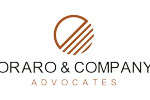Why are fraud disputes increasing year on year?
Numbers collected by the litigation intelligence company Solomonic show a dramatic increase: 94 fraud-related cases were recorded in 2020, compared with 61 cases in 2019 and 31 in 2018.
Based on our experience, 2021 is likely to see that number go even higher. It’s hard to know exactly what is driving that. I don’t think that we have collectively become worse people though.
The likely key factors are:
- financial pressures that have been kicked down the road since the financial crisis which have led to more frauds coming to light (when the tide goes out you see who’s been swimming naked);
- greater and more accessible electronic records which evidence fraud and therefore allow solicitors and counsel to feel able to plead fraud in more cases;
- a slight normalisation of pleading fraud (although solicitors and counsel still take their obligations very seriously); and
- clients becoming more willing to air their dirty laundry in public.
There are some notable new jurisdictions which along with the usual suspects will continue to drive an increase in fraud disputes in London for many years to come.
What was a key judgment from the past year that all fraud lawyers should be aware of?
One of the key judgments from the last year that we were fortunate to be involved in was Mr Justice Andrew Baker’s decision dismissing the committal application against our client Mr Deripaska in Navigator Equities & Anr v Deripaska. Committal applications have long been used by fraud lawyers as a nuclear tool to pursue their clients’ objectives.
In his decision, Mr Justice Andrew Baker pushed back against the significant increase in hostility and aggressiveness in the conduct of litigation over the past 30 years. The importance of the decision is highlighted by the pre-eminent fraud chambers, Essex Court Chambers, leading with a discussion of the case in its fraud summit from 15-29 April 2021.
I was particularly fortunate as the committal application was dismissed for abuse of process on the morning of the day that I was due to be cross-examined.
The decision has been appealed and will be heard in October of this year. The Court of Appeal’s decision will be keenly anticipated and will frame the landscape for committal applications for years to come.
Beyond banks and financial institutions, are there are new sectors or areas that are increasingly being dragged into fraud disputes?
Russian/Former Soviet Union (FSU) work has kept many London disputes lawyers busy for years and there are clear signs that will only continue to increase. We should be rightly proud of English law and the English judiciary which is deservedly seen as the finest in the world. Litigating in London is expensive, but Russian/FSU clients appreciate that fairness is guaranteed and that the procedural tools in London (disclosure, detailed cross-examination, freezing and other injunctions) provide the best opportunity to prove a fraud claim and subsequently enforce any judgment against worldwide assets.
New areas? We’re very interested in cryptocurrency and crypto fraud. It may be my age but it seems like fool’s gold to me.
Are there any other hot topics in fraud?
Fraud lawyers can be a sad bunch and we get very excited about Section 1140 of the Companies Act. This is a provision that on its face allows company directors domiciled abroad but who have registered an English address at Companies House to be served with legal proceedings at that address without the court’s permission whether or not the proceedings have anything to do with the company in question. It is a very powerful backdoor route to avoid having to serve out of the jurisdiction. It is a provision ripe for review by the Court of Appeal.

‘New areas? We’re very interested in cryptocurrency and crypto fraud. It may be my age but it seems like fool’s gold to me.’
Andy McGregor, RPC
No corporate lawyer will read this but fraud lawyers would do well to tell their corporate colleagues to check that clients domiciled abroad are not unwittingly leaving themselves open to being served in England.
How would you describe RPC’s fraud practice?
Currently the key areas in our fraud practice are Russian/FSU disputes (key partners Rupert Boswall, Tatiana Minaeva, Dan Wyatt and myself), banking disputes with a fraud element (Tom Hibbert, Simon Hart, Jake Hardy, Jonathan Cary, Davina Given, Chris Ross, Parham Kouchikali, Alan Williams, Dan Hemming and myself), African disputes (Tom Hibbert, Rupert Boswall, Jonathan Cary, Alan Williams and myself), white collar crime (Sam Tate, Jonathan Cary, Davina Given, Parham Kouchikali and Michelle Sloane) and fraud disputes with an insolvency element (Finella Fogarty, Paul Bagon, Tim Moynihan, Dan Wyatt and myself). The Middle East is also a growth area that we are focused on.
As a firm with over 250 litigators and 15 partners spending much of their time on fraud disputes, we have the capacity to take on the largest and most complex cases.
A lot of firms have built up fraud practices in recent years, what sets RPC apart from the crowd?
A large number of the top fraud practices sit within litigation boutiques such as the fraud specialists PCB Byrne and Peters and Peters. RPC offers something slightly different. A mid-sized full-service firm that is very rarely conflicted and which is able to call on non-contentious colleagues as required. At the other end of the scale are the largest English and US international firms which have fantastic lawyers but which are at times restricted by their client base and unable to be quite as nimble. Fortunately the market prospects are such that there is a place for everyone and plenty of opportunities.
What’s the pitch to clients and the market?
We are a disputes firm with a proven track record acting in the largest and most complex fraud disputes. We are decent people to work with but we will fight to the end to get the best outcome possible for our clients. And we won’t charge the earth in doing so. We’re also hiring at all levels so do get in touch if that sounds of interest!
Andy McGregor is head of civil fraud at RPC.













